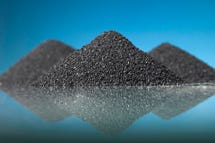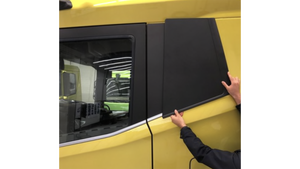Bayer MaterialScience has opened a large carbon nanotube (CNT) pilot facility in Leverkusen, boasting annual capacity of 200 tonnes. The company has invested €22 million in the operation located at Chempark in Leverkusen, Germany, home to Bayer's corporate headquarters. Dr. Joachim Wolff, a member of Bayer MaterialScience's executive committee and head of the coatings, adhesives, and specialties segment, said current forecasts assign a 25% annual growth rate to CNTs, with the market expected to be worth $2 billion within 10 years.
January 29, 2010
Bayer MaterialScience has opened a large carbon nanotube (CNT) pilot facility in Leverkusen, boasting annual capacity of 200 tonnes. The company has invested €22 million in the operation located at Chempark in Leverkusen, Germany, home to Bayer's corporate headquarters. Dr. Joachim Wolff, a member of Bayer MaterialScience's executive committee and head of the coatings, adhesives, and specialties segment, said current forecasts assign a 25% annual growth rate to CNTs, with the market expected to be worth $2 billion within 10 years.
|
Bayer MaterialScience with its new carbon nanotube production facility in Leverkusen, Germany, will carry the title of world's largest CNT producer until this summer, when competitor Nanocyl is set to open a plant with twice the annual output (400 tonnes). |
The announcement from Bayer comes the same week that Belgian competitor Nanocyl said it was installing a new reactor for nanotube production that would boost its production capacity to 400 tonnes/year. That new reactor is scheduled to come online in July 2010, doubling the size of Bayer's now operational site. Last summer, CNano, headquartered in California but with manufacturing in China, brought online a 500 ton/yr facility for CNT production.
Bayer has been operating a pilot facility with an annual capacity of 60 tonnes in the German state of Laufenburg at Baden-Württemberg since 2007. The CNTs are manufactured from ethylene in a reactor at an elevated temperature using a catalytic process. Bayer expects nanotechnology to create a total of 100,000 new jobs in Germany in the medium term. "Under the right conditions, the next few years will see nanotechnology becoming a powerful branch of industry in Germany, offering attractive job prospects, innovative products, and competitive solutions," said Steffen Kühling, head of production and technology in the coatings, adhesives, and specialties segment of Bayer MaterialScience.
Bayer MaterialScience markets its technology under the Baytubes brand name. The tiny structures can be added to polymer matrices or metal systems as a filler or modifier to improve mechanical strength and impart electrical properties. Beyond coatings, potential applications for CNTs in plastics include rotor blades for wind turbines, and sports equipment such as skis, hockey sticks, and surfboards.
According to Nanotube-Suppliers.com, there are more than 40 suppliers of carbon nanotubes globally, including the various forms they come in: single-, double-, multi-walled, etc. CNT manufacturer Arry is also located in Germany, with additional European manufacturers in Belgium (Nanocyl), France (Arkema, INP Toulouse), Austria (Carbon 21), and the UK (ADS). China has four suppliers, but the vast majority, 27, are located in the U.S. According to a study from The Freedonia Group, global demand for nanotubes was expected to expand rapidly from a small base to more than $200 million in 2009. Flat-panel displays for computers and televisions were to be the first widely commercialized applications, and the U.S. was to remain the largest national market, with Japan trailing in second. Up-to-date production data are difficult to come by, but according to a 2002 report from Fuji-Keizai USA Inc., global CNT production capacity at that time was only 2.5 tonnes/day. By 2005, the researchers felt the market would expand in three years from $12 to $700 million in 2005. —[email protected]
About the Author(s)
You May Also Like



